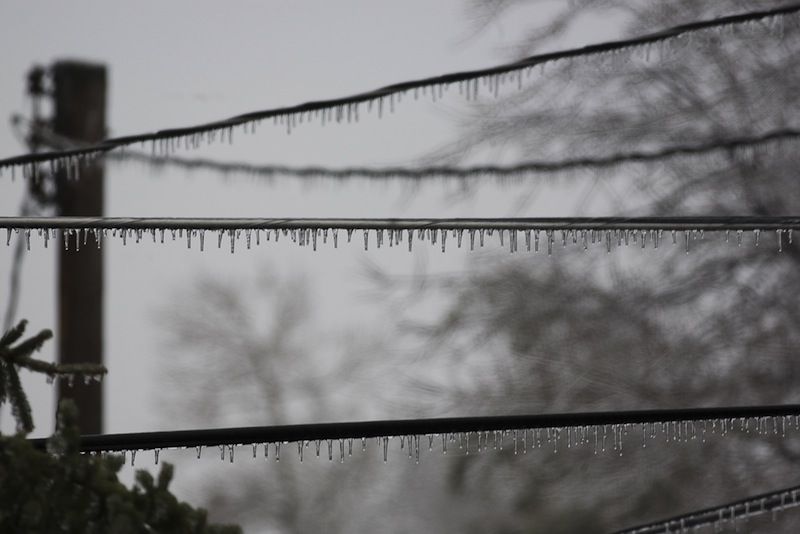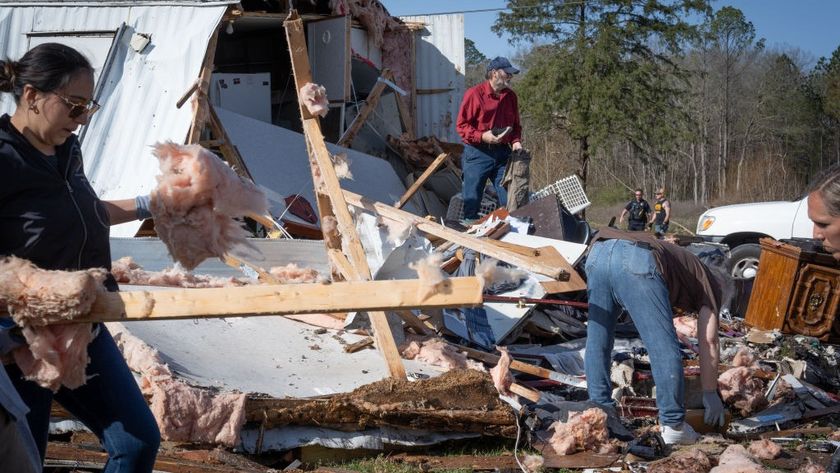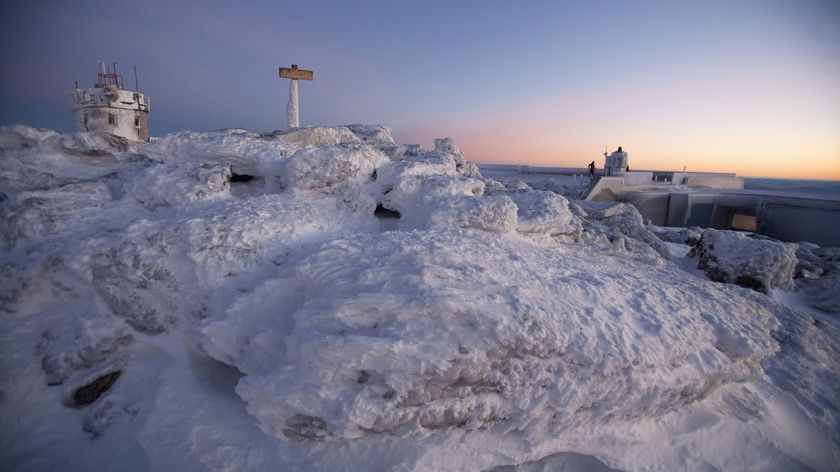How to Survive a Power Outage During an Ice Storm

This article was provided by AccuWeather.com.
As an ice storm moves through parts of Texas to Kentucky, power lines are likely to be weighed down by ice with the potential for widespread power outages.
Expert Senior Meteorologist Henry Margusity said, "Such an icing event could result in power outages ranging from a local to regional basis."
Power outages highlight our dependence on electricity and the necessity to prepare for unexpectedly living without it. However, there are steps you can take to prepare. With the threat of unexpected and storm-related power outages always looming, enact these measures to ensure you and your family's safety.
Actions to Take When an Ice Storm is Approaching
Sometimes power outages are expected by the arrival of severe weather events such as hurricanes or ice storms. These are additional steps you can take to prepare your home for weather-related blackouts.
Keep at least ½ of a tank of gas in your car at all times. Many gas stations rely on electricity to power their pumps. While it may seem inconvenient to make more frequent stops at the gas station, if you have a near-empty tank during a power outage, you may lack the fuel to travel beyond an evacuation area in case of an emergency order.
Trim tree branches in your yard. It's a good idea to address any landscaping concerns before the storm season begins in your area. When a storm is approaching your home, take note of the tree limbs on your property. If they hang over power lines, make sure to trim them before the storm hits. Doing so will decrease the chances your power will be cut by a fallen tree limbs.
Sign up for the Live Science daily newsletter now
Get the world’s most fascinating discoveries delivered straight to your inbox.
Turn your refrigerator and freezer to their coldest settings. Lowering the temperature before you lose power will allow the refrigerator to keep acceptable temperatures for food longer. Eat perishable foods first, conserving canned or other non-perishable items for the possibility of a long-term outage.
Guidelines During a Power Outages
After determining the cause of a power outage, use these measures to weather the outage safely.
If you own a generator, operate it safely. Never run a generator inside a home or garage, they produce potentially deadly carbon-monoxide fumes. Always keep running generators in an open and ventilated area. Also, do not directly connect the generator to your home's wiring. Plug all necessary appliances directly into the generator. When a generator is connected to a home's wiring, it can create a "back feed" into utility lines which can injure or kill anyone who is working to restore the power.
To maintain the refrigerated and frozen foods, keep fridge and freezer openings to a minimum. By not opening the door, you can keep the temperature lower for a longer period of time. Make a conscious effort before you open the fridge/freezer to plan what you will take out and close the door quickly. To increase the effectiveness of your powerless fridge, you can fill plastic containers with cold water and place inside the appliance. Not only does this increase your emergency water supply, it also helps keep the air cool inside the fridge to slow the spoilage of your food.
Unplug all appliances and leave only one light switched on. There is an added risk of power surges occurring that can destroy your appliances. Leave one light on in your home so you know when the power has returned.
In case of extreme temperatures, plan on visiting locations and businesses that are likely to have generators. For instance, power outages are common during ice storms. Plan on visiting shopping malls or community centers that have generators to keep warm.
Follow these essential tips to help ensure the safety of you and your family from the unpredictability of power outages.
Have questions, comments, or a story to share? Email Erin Cassidy at cassidye@accuweather.com. Follow us @breakingweather, or on Facebook and Google+.
© AccuWeather.com. All rights reserved. More from AccuWeather.com.












